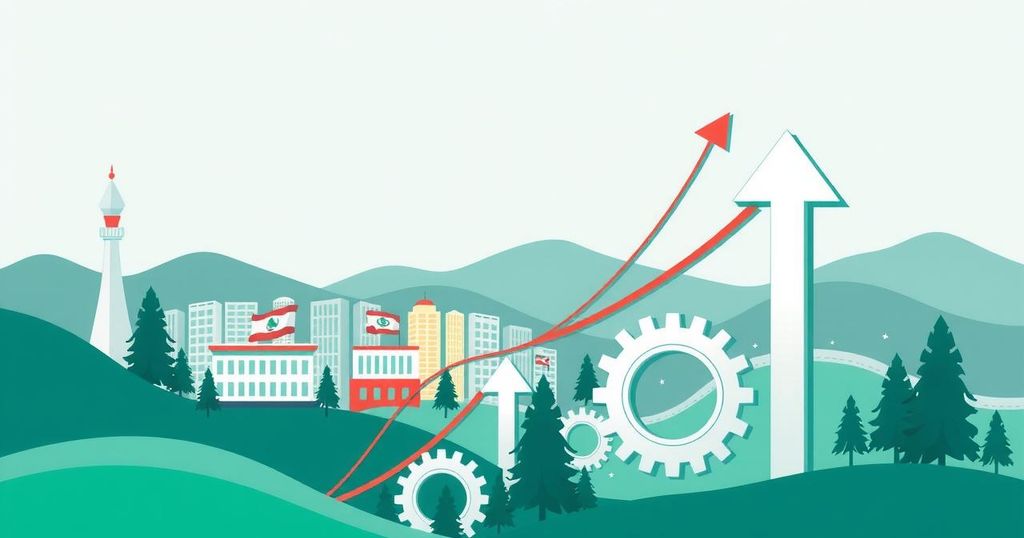The IMF states that a cohesive financial reform plan is key for Lebanon to address economic issues and secure foreign funding. President Joseph Aoun emphasizes Lebanon’s reform commitment. Discussions involve reaching consensus for parliamentary approval, which would unlock aid and enhance credibility. Additionally, diplomatic efforts have led to the release of captives, further shaping Lebanon’s political dialogues with neighboring Israel.
The International Monetary Fund (IMF) has announced that a consolidated financial reform plan is crucial for Lebanon to address its economic challenges and secure foreign funding. Ernesto Ramirez Rigo, the IMF’s mission head, highlighted these points during a meeting with President Joseph Aoun, who reaffirmed Lebanon’s commitment to implementing necessary reforms. The discussions are part of negotiations intended to facilitate essential reforms towards financial recovery, amidst Lebanon’s ongoing crises since 2019 stemming from corruption and mismanagement.
Najat Charafeddine, the presidential media adviser, reported that the IMF stressed the importance of consensus among relevant parties for the proposed plan to be passed in parliament. Successful adoption of the reforms is expected to lead to increased aid, including grants from allied nations. Officials noted that approval from the IMF would provide legitimacy and unlock necessary assistance for Lebanon.
The importance of returning to core financial fundamentals was underlined, especially regarding bank restructuring and amendments to existing banking secrecy laws. These reforms have been stalled due to existing disagreements. Meanwhile, IMF and World Bank experts are engaging with the Lebanese Ministry of Finance to enhance transparency and propose comprehensive reforms.
Meetings are ongoing with key Lebanese political figures, including Prime Minister Nawaf Salam and Finance Minister Yassine Jaber, to refine the economic plan and outline priority reform areas, such as the appointment of the Bank of Lebanon’s governor. Minister Jaber emphasized the need for gradual solutions to the issue of frozen bank deposits while acknowledging his limited power over the banking sector.
Ousmane Dione from the World Bank previously called for the Lebanese government to prioritize reforms to foster trust and enhance the business climate. An upcoming meeting with a technical committee from the Association of Banks will focus on assessing the exchange market performance and banking restrictions.
In parallel to economic discussions, Lebanon’s diplomatic engagement has led to the release of four captives by Israel, perceived as a positive outcome from diplomatic maneuvers. This development was celebrated among Hezbollah supporters, while negotiations to resolve ongoing border disputes between the two countries are encouraged by US-mediated discussions. Six previously unresolved points remain as Lebanon and Israel seek to address border claims and enhance bilateral relations.
A joint statement from the US and French embassies in Lebanon reaffirmed commitment to ongoing ceasefire discussions. Israel has ambitions for normalization with Lebanon and aims to maintain momentum in its diplomatic policies while addressing outstanding territorial claims within the context of a broader agreement.
In summary, the IMF’s endorsement of a unified financial reform plan is essential for Lebanon to mitigate its economic challenges and access vital foreign funding. Diplomatic efforts alongside economic reforms provide hope for future stability and cooperation with international allies. The simultaneous focus on resolving hostage situations and border disputes further illustrates the complexity and interlinked nature of Lebanon’s current political and economic landscape.
Original Source: www.arabnews.com




